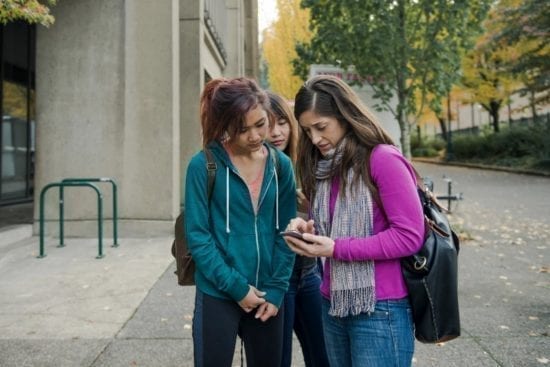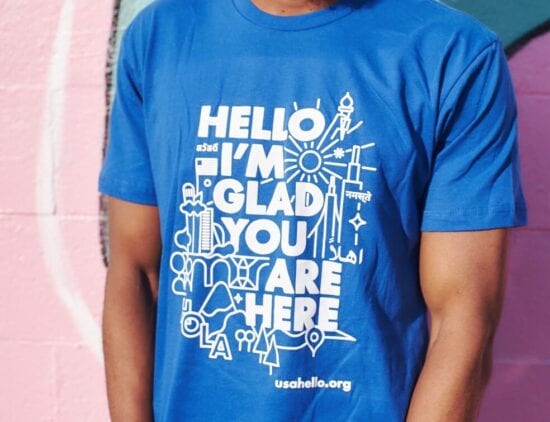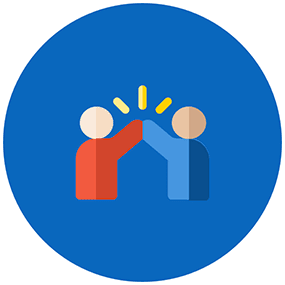How to help
Volunteer with USAHello
Volunteer with USAHello
USAHello is making trustworthy inclusive, resources available to everyone. Our work is only made possible through our volunteers’ time and talent.
Learn more
Make a donation
Make a donation
USAHello provides the information and education that is key to successful integration and thriving communities. Your support makes us all stronger.
Donate

Spread the word about USAHello
Share USAHello, FindHello, and the USAHello classroom with organizations and people in your community. We have multilingual outreach materials to distribute to schools, libraries, agencies and among your new neighbors.

Share a message of welcome!
Buy a Hello shirt today to support USAHello. Adult and youth sizes are available. Plenty of colors to choose from with “Hello” shared in a variety of languages. Proceeds support USAHello’s efforts to provide crucial translated information.

Our results and impact
We make real change
See how we’re helping refugees and immigrants build new lives.

